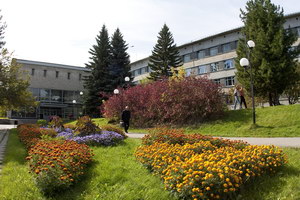Technique of multilevel adjustment calculation of the heat-hydraulic mode of the major heat supply systems with the intermediate control stages
Библиографическая ссылка
Tokarev V.V., Shalaginova Z.I. Technique of multilevel adjustment calculation of the heat-hydraulic mode of the major heat supply systems with the intermediate control stages // Thermal Engineering . Vol.63. No.1. 2016. P.68-77. DOI: 10.1134/S0040601516010110 http://rd.springer.com/article/10.1134%2FS0040601516010110SCOPUS


